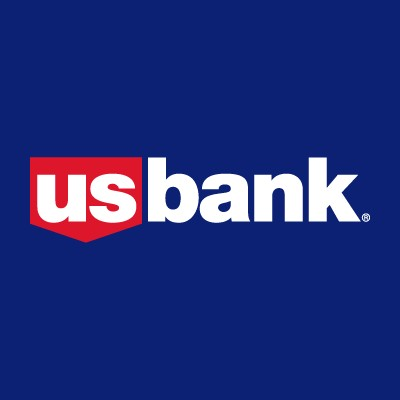Navigating the Banking Landscape for Real Estate Investors in 2025
February 8, 2025, 10:32 am

Location: Israel, Haifa District, Caesarea
Employees: 201-500
Founded date: 2013
Total raised: $766M
In the realm of real estate investing, choosing the right bank is akin to selecting the perfect plot of land. The foundation you lay today can determine your success tomorrow. As we step into 2025, the banking landscape for real estate investors is evolving. With fintech innovations and traditional banks vying for attention, investors must navigate a sea of options to find the best fit for their needs.
Real estate investing is not just about properties; it’s about managing cash flow, securing loans, and maximizing profits. The right bank can streamline these processes, making it easier to focus on what truly matters: growing your portfolio. Here’s a closer look at the best banks for real estate investors in 2025, highlighting their unique offerings and advantages.
With no monthly fees and unlimited virtual accounts for security deposits, Baselane simplifies property management. Investors can enjoy tiered APY rates up to 3.35% on savings, making it a compelling choice for those looking to maximize their returns. The platform’s user-friendly interface allows for quick online account setup, making it accessible for both seasoned investors and newcomers.
U.S. Bank also offers an enticing welcome bonus of up to $900 for new account holders, adding an extra layer of appeal. However, investors should note that while the bank provides robust loan options, the interest rates may vary, and there are steep balance requirements for higher-tier accounts.
Chase’s extensive branch network across 48 states provides in-person banking services, a significant advantage for those who prefer face-to-face interactions. However, investors should be aware of the monthly fees associated with higher-tier accounts, which can be steep unless certain balance requirements are met.
The platform’s integration with popular accounting software like QuickBooks makes it easy to track finances. However, investors should note that Bluevine does not offer traditional savings products, which may limit options for those looking to diversify their banking services.
While Stessa’s banking products may not be as robust as traditional banks, its focus on rent collection makes it a valuable tool for landlords. The basic plan is free, and higher-tier plans offer competitive interest rates, making it a cost-effective solution for managing rental income.
However, investors should be prepared for a more traditional banking experience, as Grasshopper operates through partnerships with established banks. This may limit some of the fintech conveniences offered by other platforms.
However, potential clients should be aware that First Internet Bank operates primarily online, which may not suit those who prefer in-person banking.
Consider factors like fees, loan options, and customer service when making your choice. The banking landscape is diverse, and with the right partner, you can streamline your operations and focus on what truly matters: building your real estate empire. As 2025 unfolds, make informed decisions to ensure your financial foundation is as solid as the properties you invest in.
Real estate investing is not just about properties; it’s about managing cash flow, securing loans, and maximizing profits. The right bank can streamline these processes, making it easier to focus on what truly matters: growing your portfolio. Here’s a closer look at the best banks for real estate investors in 2025, highlighting their unique offerings and advantages.
1. Baselane: The Fintech Powerhouse
Baselane stands out as the best overall bank for real estate investors. While it operates as a fintech platform rather than a traditional bank, it partners with Thread Bank to provide FDIC insurance. Baselane offers a suite of features tailored for landlords, including automated rent collection, tenant screening, and bookkeeping services.With no monthly fees and unlimited virtual accounts for security deposits, Baselane simplifies property management. Investors can enjoy tiered APY rates up to 3.35% on savings, making it a compelling choice for those looking to maximize their returns. The platform’s user-friendly interface allows for quick online account setup, making it accessible for both seasoned investors and newcomers.
2. U.S. Bank: The Traditional Choice
For those seeking long-term owner-occupied commercial real estate (CRE) loans, U.S. Bank is a solid contender. With a variety of CRE lending solutions, it caters to investors looking to purchase or renovate multi-family buildings. The Silver Business Checking account, which has no monthly fees, allows for 125 free transactions and a cash deposit allowance of $2,500 per month.U.S. Bank also offers an enticing welcome bonus of up to $900 for new account holders, adding an extra layer of appeal. However, investors should note that while the bank provides robust loan options, the interest rates may vary, and there are steep balance requirements for higher-tier accounts.
3. Chase: The Versatile Player
Chase is a heavyweight in the banking sector, offering a wide array of business banking products, including commercial real estate financing. Its Business Complete Checking account is designed for flexibility, allowing for up to $500,000 in lines of credit and small business loans.Chase’s extensive branch network across 48 states provides in-person banking services, a significant advantage for those who prefer face-to-face interactions. However, investors should be aware of the monthly fees associated with higher-tier accounts, which can be steep unless certain balance requirements are met.
4. Bluevine: The Fintech Innovator
Bluevine is making waves in the fintech space, particularly for its interest-earning checking accounts and small business lines of credit. With no monthly fees and an impressive APY of up to 3.7%, Bluevine is an attractive option for real estate investors looking to grow their funds while managing expenses.The platform’s integration with popular accounting software like QuickBooks makes it easy to track finances. However, investors should note that Bluevine does not offer traditional savings products, which may limit options for those looking to diversify their banking services.
5. Stessa: The Rent Collection Specialist
Stessa is a niche player focused on online rent collection and property management. Its platform allows real estate investors to manage multiple properties with ease, offering features like automated invoicing and comprehensive tenant screening.While Stessa’s banking products may not be as robust as traditional banks, its focus on rent collection makes it a valuable tool for landlords. The basic plan is free, and higher-tier plans offer competitive interest rates, making it a cost-effective solution for managing rental income.
6. Grasshopper: The SBA Financing Expert
Grasshopper shines in the realm of Small Business Administration (SBA) financing. With a focus on high-yield bundled accounts, it provides customized CRE lending solutions for investors looking to expand their portfolios. Grasshopper’s business checking accounts come with no monthly fees, making it an appealing choice for startups and established businesses alike.However, investors should be prepared for a more traditional banking experience, as Grasshopper operates through partnerships with established banks. This may limit some of the fintech conveniences offered by other platforms.
7. First Internet Bank: The Custom Solution Provider
First Internet Bank rounds out the list with its tailored CRE lending solutions and competitive APY earnings. With a focus on personalized service, it caters to investors seeking customized banking experiences. The bank’s Do More Business Checking account offers no monthly fees and unlimited transactions, making it a practical choice for active investors.However, potential clients should be aware that First Internet Bank operates primarily online, which may not suit those who prefer in-person banking.
Conclusion: Choosing Your Banking Partner
In the world of real estate investing, the right bank can be a game-changer. Whether you lean towards fintech solutions like Baselane and Bluevine or prefer the stability of traditional banks like U.S. Bank and Chase, understanding your needs is crucial.Consider factors like fees, loan options, and customer service when making your choice. The banking landscape is diverse, and with the right partner, you can streamline your operations and focus on what truly matters: building your real estate empire. As 2025 unfolds, make informed decisions to ensure your financial foundation is as solid as the properties you invest in.
